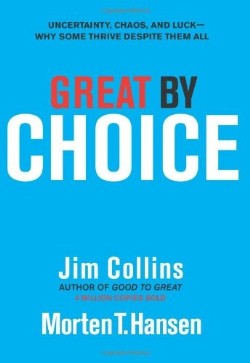Works Of John Wesley 12
$77.99
The first of three theological volumes, this volume is devoted to four of John Wesley’s foundational treatises on soteriology.
These treatises include, first, Wesley’s extract from the Homilies of the Church of England, which he published to convince his fellow Anglican clergy that the ‘evangelical’ emphasis on believers experiencing a conscious assurance of God’s pardoning love was consistent with this standard of Anglican doctrine. Next comes Wesley’s extract of Richard Baxter’s Aphorisms of Justification, aimed more at those who shared his evangelical emphasis, invoking this honored moderate Puritan to challenge antinomian conceptions of the doctrine of justification by faith. This is followed by Wesley’s abridgement of the Shorter Catechism issued by the Westminster Assembly in his Christian Library, where he affirms broad areas of agreement with this standard of Reformed doctrine-while quietly removing items with which he disagreed. The fourth item is Wesley’s extended response to the Dissenter John Taylor on the doctrine of original sin, which highlights differences within the broad ‘Arminian’ camp, with Wesley resisting a drift toward naively optimistic views of human nature that he discerned in Taylor.
in stock within 3-5 days of online purchase
SKU (ISBN): 9781426744303
ISBN10: 1426744307
Randy Maddox
Binding: Cloth Text
Published: June 2012
Works of John Wesley # 12
Publisher: Abingdon Press
Print On Demand Product
Related products
-
I Still Believe Small Group DVD Kit
$39.99Add to cartThe I Still Believe Small Group Kit combines a 5-episode DVD series, 35-day devotional journal, and thorough leader’s guide to serve as a five-week guided tour for small groups through the biblical response to commitment, sacrifice, grief, loss, and also God’s sovereignty and redemption. This kit comes as a ready-to-use package that makes it easy to implement small groups in your church or ministry.
Includes: Video Series, Leader’s Guide, and Study Journal
-
Great By Choice
$29.99Add to cartThe new question
Ten years after the worldwide bestseller Good to Great, Jim Collins returns with another groundbreaking work, this time to ask: Why do some companies thrive in uncertainty, even chaos, and others do not? Based on nine years of research, buttressed by rigorous analysis and infused with engaging stories, Collins and his colleague, Morten Hansen, enumerate the principles for building a truly great enterprise in unpredictable, tumultuous, and fast-moving times.The new study
Great by Choice distinguishes itself from Collins’s prior work by its focus not just on performance, but also on the type of unstable environments faced by leaders today.With a team of more than twenty researchers, Collins and Hansen studied companies that rose to greatness-beating their industry indexes by a minimum of ten times over fifteen years-in environments characterized by big forces and rapid shifts that leaders could not predict or control. The research team then contrasted these “10X companies” to a carefully selected set of comparison companies that failed to achieve greatness in similarly extreme environments.
The new findings
The study results were full of provocative surprises. Such as:The best leaders were not more risk taking, more visionary, and more creative than the comparisons; they were more disciplined, more empirical, and more paranoid.
Innovation by itself turns out not to be the trump card in a chaotic and uncertain world; more important is the ability to scale innovation, to blend creativity with discipline.
Following the belief that leading in a “fast world” always requires “fast decisions” and “fast action” is a good way to get killed.
The great companies changed less in reaction to a radically changing world than the comparison companies.
The authors challenge conventional wisdom with thought-provoking, sticky, and supremely practical concepts. They include: 10Xers; the 20 Mile March; Fire Bullets, Then Cannonballs; Leading above the Death Line; Zoom Out, Then Zoom In; and the SMaC Recipe.Finally, in the last chapter, Collins and Hansen present their most provocative and original analysis: defining, quantifying, and studying the role of luck. The great companies and the leaders who built them were not luckier than the comparisons, but they did get a higher Return on Luck.
This book is classic Collins: contrarian, data-driven, and uplifting. He and Hansen show convincingly that, even in a chaotic and uncer






Reviews
There are no reviews yet.